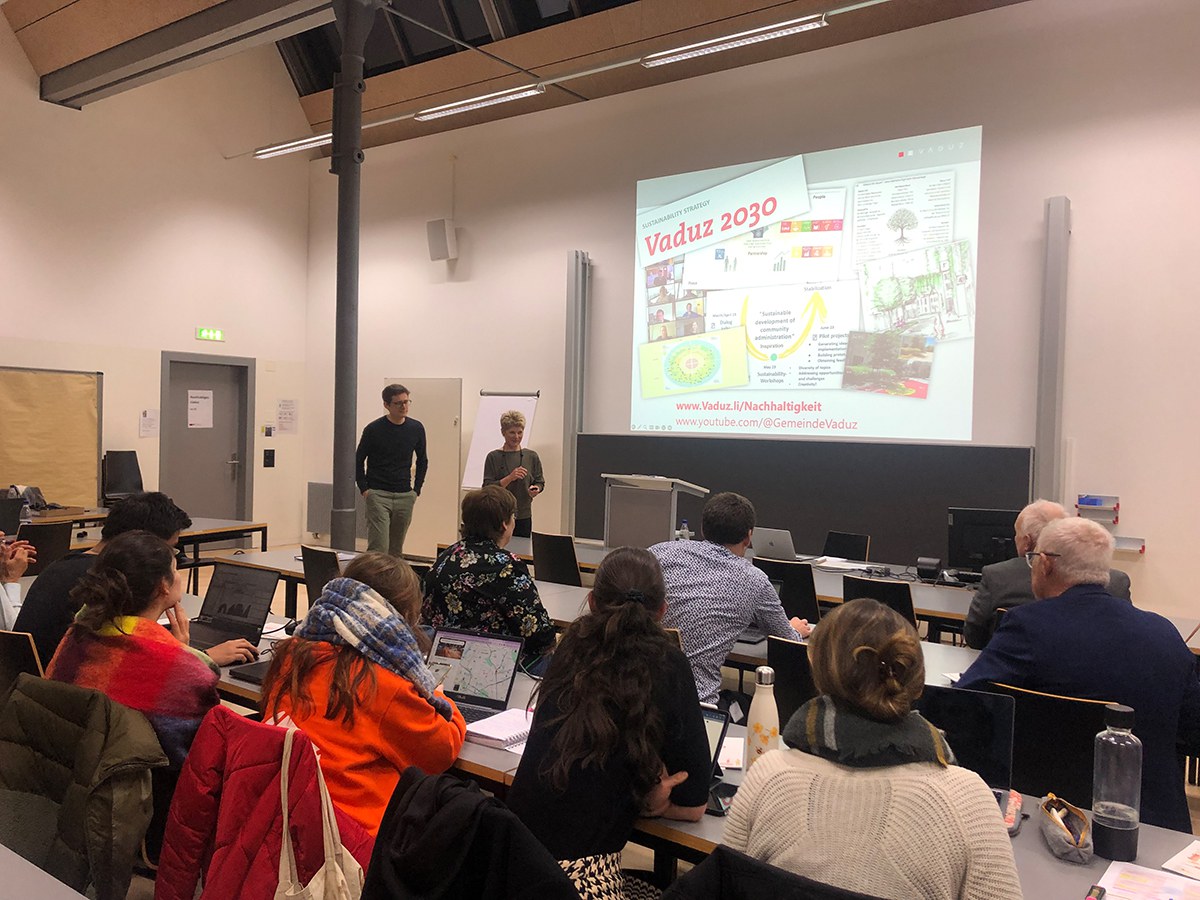Ruth Ospelt-Niepelt, also a Municipal Councillor, highlighted the city's commitment to Sustainable Development Goals (SDGs), particularly focusing on jointly defined Key Areas, which are: sustainable urban development, health and wellbeing, inclusive prosperity, peace through strong institutions, and collaboration with local and international partners. Ruth Ospelt-Niepelt, highlighting Vaduz's commitment to becoming a pioneer in sustainable urban development. As Vaduz moves forward, the city sets an example for other municipalities, demonstrating steadfast commitment to sustainability and citizens' wellbeing.
In the second talk, Christoh Sele, Partner at 7Gen GmbH, shared insights into their presence in Liechtenstein since January 2020, emphasizing sustainability initiatives. Sele highlighted a strategic plan for sustainability implementation, focusing on Points 4 and 5, which are the foundation for Sustainability. Under Point 4, the focus is on integrating sustainability into politics, administration, and fostering community spirit. Point 5 emphasizes effective communication and collaborations at local, regional, national, and international levels. Sele envisions a resilient Liechtenstein by strategically embedding sustainability in political structures, fostering community unity, and promoting effective communication and collaboration. Their sustainability consulting projects aim to create lasting positive impacts.
In the third presentation, Hartmut Hübner from Hübner Management GmbH in Vaduz discussed significant projects and their execution. The objective is to identify administrative areas and commissions that align with sustainability strategies, utilizing dialog talks and sustainability workshops. Their aim is to identify administrative sectors embracing sustainability, with Hübner detailing procedures like dialog talks and sustainability workshops. He emphasized the importance of fostering a shared understanding of sustainability and promoting collective responsibility. Hübner's initiative demonstrates a dedication to instilling sustainability practices in administrative and commission sectors, fostering a more responsible and environmentally conscious Vaduz.
Marion Spirig, Head of the Structural Engineering Department, addressed final the critical environmental concerns, including climate change and biodiversity crises. While acknowledging challenges like increased temperatures and more rainy days, Spirig suggested reducing heating as a positive influence on biodiversity. In discussing measures for urban heat reduction, Spirig highlighted problems such as soil sealing and a lack of green spaces in the city center. Analyzing heat perception during different times of the day, she identified cool spots and proposed solutions like planting trees and incorporating water fountains in key areas.
Emphasizing the importance of tree planting and rethinking rainwater management, Spirig's proposals aim to create a more sustainable and cooler urban environment. Her recommendations align with a broader effort to address environmental issues and enhance the quality of urban spaces.
